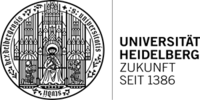Dr Markus Bayer
Senior Researcher
showResearch for a more peaceful world
Militarisation seems to be the defining Zeitgeist of the new 'post-post-Cold War era'. Despite a rich tradition of research, the volume of cross-national empirical research on militarization—and thus our knowledge of the causes and consequences of the phenomenon—remains thin.
This project aims to address this gap by:
The project team will publish a codebook containing information about each of the variables in the dataset. We will also submit a research proposal for a follow-up project to the German Research Foundation (DFG) by the end of 2023. This proposal will aim to further expand the dataset and use the data for comparative research. We aim to gain new insights into the relationship between the different dimensions of militarisation and their impact on regime stability, internal security, and development.

Aurel Croissant, Professor, Institute of Political Science at the University of Heidelberg
Nikitas Scheeder, PhD Candidate, Institute of Political Science at the University of Heidelberg

Roya Izadi, Assistant Professor, Department of Political Science at the University of Rhode Island